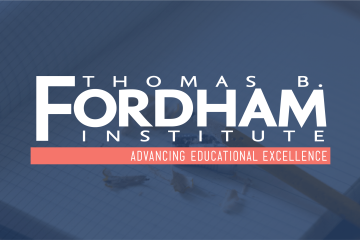Last month in New York City, I sat through a series of talks and breakout sessions on evidence-based classroom practices at ResearchEd, a burgeoning global series of conferences aimed at instructional diehards like me. I couldn’t help but notice a pattern: Speaker after speaker kept citing educators and authors I’d first encountered in the pages of the American Educator a decade or more ago: Dan Willingham, Barak Rosenshine, E.D. Hirsch Jr., and others. Their names bounced around the auditoriums and classrooms, their ideas on curriculum, instruction, and cognition firing up teachers and principals desperate for what works—or might work—in their classrooms.
Speak, memory!
If you’re not familiar with it, American Educator is a quarterly published by the American Federation of Teachers. That’s right, the nation’s second largest teachers union. For decades, its savvy editors were tuned into evidence-based practice and its leading lights, spotlighting them long before ResearchEd platformed them for a new generation of teachers. If you haven’t heard of it, well, there’s the rub: ResearchEd is battling to make evidence-informed teaching the norm—structured, evidence-backed classroom practice—but the American Educator got there years ago, with much the same vision and many of the same heavy hitters to back it up. So why hasn’t it moved the needle? And what’s happened to it lately?
It’s fashionable in education reform and political circles to blame the unions for all of education’s ills, but I’ve never faulted them for looking out for their members’ interests. The greater sin of the AFT, at least in the decades since Al Shanker’s retirement, has been its failure to lead on curriculum and instruction—or even give it much oxygen at all. Worse, AFT President Randi Weingarten routinely takes to the pages of American Educator to unburden herself of predictable political rants, complaining about the Trump administration’s “chaos, confusion, corruption, and cronyism” in the current issue, for example. Such partisan tub-thumping does little for teachers more eager to learn about cognitive load theory than how “the Biden-Harris administration guided the country to the strongest post-Covid economy in the world.”
I lost track of the number of times I heard ResearchEd presenters name-drop Barak Rosenshine and his “Principles of Instruction,” which first appeared in the magazine’s Spring 2012 issue: ten steps, from reviewing prior learning to checking understanding, all grounded in cognitive science. ResearchEd speakers brandished it like a sword, slicing through “discovery learning” nonsense. Similarly, you can thank the quarterly for making University of Virginia cognitive scientist Dan Willingham a household name—at least in households that prize evidence-based instruction. The American Educator began running his “Ask the Cognitive Scientist” columns in 2002. There were so many PowerPoint slides quoting Dan at ResearchEd that I tweeted one, tagging him and saying “Wish you were here.” He practically was.
I’ve long pointed out to ed reform friends and colleagues that back when they were largely indifferent to curriculum as a lever to improve student outcomes, among the first and most vocal champions of E.D. Hirsch Jr.’s seminal work on background knowledge and reading comprehension was the legendary AFT leader Albert Shanker (1928–1997). American Educator frequently turned its attention to Hirsch’s work including his Spring 2000 (!) cover story titled “You Can Always Look It Up’…or Can You?”—a piece no less relevant in today’s era of AI than it was in the emerging Internet age a quarter-century ago. The list of authors and thinkers the magazine has published or referenced reads like the lineup of a ResearchEd conference: Paul Kirschner, Susan Neuman, Pedro De Bruyckere, Dylan Wiliam, among (many) others.
Teachers unions are a reliable bogeyman—cartoon villains guarding tenure and stagnation and indifferent to children. I’ve never been of the mind to criticize them for doing what unions were created to do. But I do fault the AFT for not leading on classroom practice in recent years. American Educator shows they’ve long had their finger on the pulse of effective practice—they just don’t leverage it. Weingarten likes to remind people that she was a high school teacher but she rarely discusses classroom practice with any seriousness or sophistication. Her Twitter feed is a litany of hot takes on Ukraine, democracy, healthcare, Trump, etc. Effective teaching? Barely a whisper. Worse, her columns cheapen the union’s flagship publication, wasting the platform in its pages on partisan noise: calling Republicans “extremists” responsible for “a coordinated campaign to destabilize and privatize public education”; praising exclusively Democratic governors exclusively for “fixing the climate crisis, for freedom from gun violence and election deniers, for reproductive and LGBTQIA+ rights.” None of these are tools for teachers—they’re shots in the culture wars.
So I queried her about it. Here’s her reply: "We made an adjustment years ago and cut a publication and use my column as the communication to our members. They have a right to know what their leadership is doing.” Fair enough, and it’s Weingarten’s prerogative to use her platform how she sees fit. But the AFT’s history of recognizing and publishing important thinkers in American Educator suggests its capacity to serve not just as a labor union but as something closer to a guild, with equal emphasis on professional development, knowledge-sharing, and maintaining standards within the profession.
The hundreds of teachers, administrators and others who pack ResearchEd conferences show the growing appetite in the field for evidence-based practice. And that appetite is largely apolitical: The only vaguely partisan moment I saw at last weekend’s conference was a ripple of guffaws and comments from the audience when it was announced at the end of the day that the next conference would be in Canada.
So, two cheers for the old AFT and the American Educator. For those who’ve been paying attention, it’s long been a reliable source of first-rate research and practice tips for those who think teaching should run on evidence, not folklore and philosophy. It could still be an important engine of K–12 instructional reform still today. All it would take is for Randi Weingarten and the AFT to give it some attention and visibility. Or failing that, just leave it the heck alone.
Editor’s note: This was first published on the author’s Substack, The Next 30 Years.




